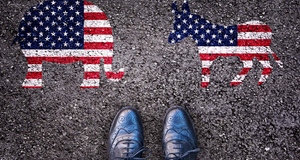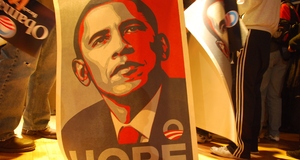From Interstate - Journal of International Affairs VOL. 2009/2010 NO. 1A Report on Electoral Turnout in the United Kingdom: Long Term and Contemporary Factors of Voting
By
Interstate - Journal of International Affairs 2010, Vol. 2009/2010 No. 1 | pg. 1/1
KEYWORDS:
nsequences. Kingdom varies significantly from one election to the next, be that in a general election or in local elections.1 We originally wanted to discover the reasons as to why the public choose to vote or not. Having Electoral turnout in the United Kingdom varies significantly from one election to the next, be that in a general election or in local elections.1 We originally wanted to discover the reasons as to why the public choose to vote or not. Having read research by academics such as Denver, we discovered that this question has already been asked on numerous occasions and therefore wouldn’t be very beneficial. For many years voting has been seen as irrational.2 To expand our idea, we decided to establish what persuades a voter when voting. We were curious to know what persuaded the voter in deciding as to what party they would vote for, be that due to a contemporary factor such as the state of the economy, or a long term factor such as family voting habits. In total, the four of us collectively gathered 300 questionnaires from a mixture of locations across the United Kingdom through the form of e-mail, phone, post and town. When we started the questionnaire, our goal was to ask a sufficient amount of people from different ages and backgrounds. Due to the fact that Aberystwyth is such a highly populated student area, we thought this spectrum would be hard to achieve; we would have had to have asked a large proportion of students in order to have a fair and robust survey sample. We decided that we would extend our question gathering to the whole of the United Kingdom. By using the census data from 2001, we could establish as to how many people we needed from various age ranges, and male and female. To succeed in this aspect of the task, we had to get 48.61% of our sample male and 51.32% female.3 With regards to age, we also looked at the census to discover how many people from each age range we needed, which in the 56+ age range we needed over 70 people. To achieve the correct number of people in age and gender range we targeted certain groups that we knew of for age ranges, such as the Women’s Institute, offices and students. We were successful to a certain extent, attaining 47.66% male and 52.33% female. This gave us fair representational results gender wise. The majority of the people surveyed were from Cardiff, Cornwall and Reading, the places where we knew had the offices or the Women’s Institute. In order to achieve a clearly structured questionnaire, we created 3 sections; an introduction section, a ranking question and expansive questions. Our first section was to establish who the person was and to ease the person into the questionnaire. We then had our primary question which is what inspired our project, a ranking system section where we had a series of options that they had to rank from 1 to 10 in concern with what influences you the most when voting, these had a mixture of contemporary and long term factors. Following this, we had some expansive questions. These were questions that expanded from some of the 1 to 10 ranking system. We thought this would be of use when we had our most influential and least influential factor, be that a contemporary or a long term factor. We could then analyze into more depth as to what precisely the reasons were for voting the way people do. Having put all the information into an SPSS computer data analysing programme, we found that the most important factor to people when voting was specific policies, followed by party leader and then the economic conditions (appendix 1). We had anticipated as a group that these would have been on the top of the list, but were surprised to find that Media support of the party and the party campaign were not high up in the ranking system at all. We predicted that these two contemporary factors would be a significant influence on people when deciding to vote, as this is how the public hear their campaigns. This is something argued by Scammell, who says that political marketing, i.e. the campaign “is seen primarily as a response to developments in media, and communication technologies.”4 It seems that the public don’t listen to this as much anymore, but decide to vote on the basis of what they have experienced or can see, such as how they have done economically or how their policies are relevant to them. Party leader is something that is shown to the public by the media in general, such as TV interviews or newspaper articles. It is again therefore interesting that the public failed to connect the fact that they see these things through the effect of the media. 2: WHAT IS THE MOST IMPORTANT FACTOR IN DETERMINING PARTY IMAGE? 3: WHAT WOULD INFLUENCE YOU THE MOST DURING A CAMPAIGN? We found that the majority of the top ranking factors were contemporary factors, demonstrating that public opinion on a party can change very quickly. Good party image was the fourth highest factor, and from our expansive questions we found that the most important factor in determining party image was significantly the competence of the party (appendix 2.). Competence of party is built up over time thus making it a long term factor, which is something we had considered, but had not thought that it would rank as highly, and thought that lack of scandals surrounding the party could have been higher. Despite this, we were intrigued to find that when asked, “What would influence you the most during a campaign”, television was ranked first (appendix 3.) We were confused as to why public appearances didn’t rank higher if the image of the party leader is the second most important factor, and the media isn’t such an important factor. Perhaps the fact that the television is a contemporary factor, are the reasons behind this. Bartle argues that “the media is important for elections because it is assumed to influence the attitudes and opinions of voters. If the press and broadcasters have any influence on voters; moreover, it is via the steady drip-drip of information rather than through either their election coverage or formal endorsements.”5 This again demonstrates the factor that the media is important, despite our findings. The factor that answered our question as to what influenced the voter most when voting was answered by the economy. In every situation in which the economy was mentioned in our survey, it was placed higher than we had originally anticipated. When asked, “What is the most important policy area to you when voting?” the economy was an overwhelming majority (appendix 4). When we did the survey there was hype within the media concerning the global financial crisis, which demonstrates how a short term factor can sway the way in which people vote. Had we asked this when the state of the economy wasn’t at its lowest, perhaps it would not have been such an issue. Our findings for the least important factor (appendix 5), were things we had known already through reading.6 Class based voting is no longer an important factor, and neither is family based voting. In conclusion, by answering out question “Long term and contemporary factors of voting”, finding that contemporary factors seemed to be the most important factors; we found some of the findings contradicting themselves. We discovered that the factor that was the most influence to the public at the time of our survey was the economy, something that reflected what was happening politically at that time, demonstrating that the contemporary factors are what the majority of people found to be the important factor when voting. I feel that this was the most important finding in our project, as we had not expected the economy to be such an important factor, and had not considered the possibilities at the time we conducted this survey would have made it such a bigger impact that expected. Endnotes
Suggested Reading from Inquiries Journal
Inquiries Journal provides undergraduate and graduate students around the world a platform for the wide dissemination of academic work over a range of core disciplines. Representing the work of students from hundreds of institutions around the globe, Inquiries Journal's large database of academic articles is completely free. Learn more | Blog | Submit Latest in Political Science |
























